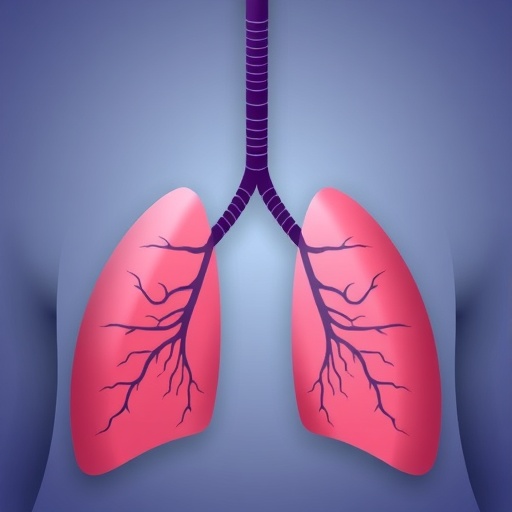Despite significant advances in lung transplantation policies, new research from UCLA Health reveals persistent gender disparities in access to lung transplantations, exposing how biological and immunological factors continue to disadvantage women relative to men. Published in The Annals of Thoracic Surgery, the study meticulously analyzes the ongoing challenges female lung transplant candidates face, even under the recently updated national organ allocation system. This research unearths the complex interplay of biology, immunology, and health policy that continues to shape outcomes in lung transplant accessibility.
Lung transplantation protocols have historically centered on the Lung Allocation Score (LAS) system implemented in 2005, a metric designed to prioritize patients based on medical urgency and prospective post-transplant survival. Although groundbreaking in increasing equity across diverse clinical scenarios, LAS did not sufficiently account for sex-linked physiological factors, such as body size and immune system differences, crucial in ensuring fair organ matching. This omission resulted in systemic barriers for women, who tend to have smaller thoracic cavities and heightened immunologic sensitivities.
The newly introduced Composite Allocation Score (CAS) system, launched nationally in March 2023 by the Organ Procurement and Transplantation Network (OPTN), represented a pivotal advancement in organ distribution methodology. CAS integrates additional critical variables into the allocation algorithm, including patient height, blood type compatibility, and immunologic sensitization markers. This innovation aimed to enhance the precision of donor-recipient matching and mitigate prior biases inherently favoring male recipients who generally present with larger anatomical dimensions and less complex antibody profiles.
Despite its sophistication, CAS has only modestly reduced gender disparities, the UCLA Health study illustrates. Pre-CAS data indicated women were 32% less likely than men to receive a lung transplant. Post-CAS implementation, this disparity narrowed but remained substantial, with women still 16% less likely to undergo transplantation. These figures underscore entrenched challenges in balancing biological feasibility with equitable organ access.
The biological underpinnings of these inequities are multifaceted. Women typically possess smaller lung capacities, a factor inherently limiting the pool of donor lungs adequately sized and compatible. Donor-recipient anatomical congruity is paramount to successful transplantation, as lung size mismatch can impair graft function and survival. Smaller body size demands more precise matches, effectively shrinking potential donor availability for female recipients.
Moreover, immunological barriers compound these challenges. Women frequently exhibit heightened sensitization driven by exposure to foreign antigens through pregnancy, blood transfusions, or autoimmune phenomena. This sensitization primes the immune system to produce antibodies against a broader array of human leukocyte antigens (HLA), increasing the likelihood of donor-specific antibody formation. These preformed antibodies markedly elevate the risk of graft rejection and complicate the identification of compatible donors.
Immunologic sensitization therefore poses a formidable obstacle in the transplant process. Current allocation algorithms incorporate immune compatibility metrics but may not fully capture or adjust for the nuanced complexity presented by female immune profiles. Consequently, women endure prolonged wait times or remain ineligible for suitable organs, reflecting an intersection between immunology and systemic bias.
The authors argue that further refinements in organ allocation algorithms are critical. Incorporating emerging immunogenetic profiling technologies and advanced computational modeling could facilitate a more nuanced, personalized approach to donor-recipient matching. Enhanced characterization of antibody specificities alongside quantitative measures of sensitization may enable algorithms to predict transplantation success with greater accuracy and equity.
Beyond algorithmic adjustments, the study advocates for structural policy reforms that acknowledge and address gender-specific challenges in transplantation. These reforms might encompass targeted donor recruitment to increase availability of smaller-sized lungs, tailored immunomodulatory therapies to reduce antibody burdens pre-transplant, and prioritization criteria that directly mitigate immunologic disadvantages in women.
Dr. Abbas Ardehali, the study’s senior author and director of UCLA’s transplantation programs, stresses the necessity for continued vigilance and innovation. While the shift from LAS to CAS marks progress, the persistent disparities signal an urgent need for comprehensive strategies that transcend conventional scoring systems. Such strategies must integrate clinical insights with sociobiological realities inherent to female patients.
The ramifications of this research extend broadly across transplantation medicine and healthcare equity domains. They underscore the critical importance of integrating sex- and gender-based biomedical research into clinical frameworks. By elucidating the specific mechanisms contributing to gender disparities, this study provides a foundation for transformative improvements aimed at maximizing equitable organ access.
Ultimately, the quest to resolve gender inequities in lung transplantation invites a multidisciplinary response. Collaborative efforts between immunologists, transplant surgeons, bioinformaticians, and policymakers are essential to evolve allocation systems that balance fairness with medical efficacy. Innovative protocols that better accommodate biological diversity have the potential to dramatically improve survival rates and quality of life for female transplant candidates.
This groundbreaking study signals both the complexities and possibilities inherent in organ transplantation reform. It represents a clarion call for the medical community to interrogate and refine existing paradigms, ensuring that equitable healthcare transcends aspiration and becomes an attainable reality for all candidates—regardless of gender.
Subject of Research: People
Article Title: Gender Disparities in Lung Transplant Access Persist Despite Allocation System Reforms
News Publication Date: 8-Oct-2025
Web References: https://www.sciencedirect.com/science/article/pii/S0003497525009579?via%3Dihub
References: 10.1016/j.athoracsur.2025.09.013
Keywords: Lung transplantation, Gender disparities, Organ allocation, Immunologic sensitization, Composite Allocation Score, Lung Allocation Score, Organ Procurement and Transplantation Network, Biological differences, Transplant policy, Immune compatibility, Donor-recipient matching, Women’s health




